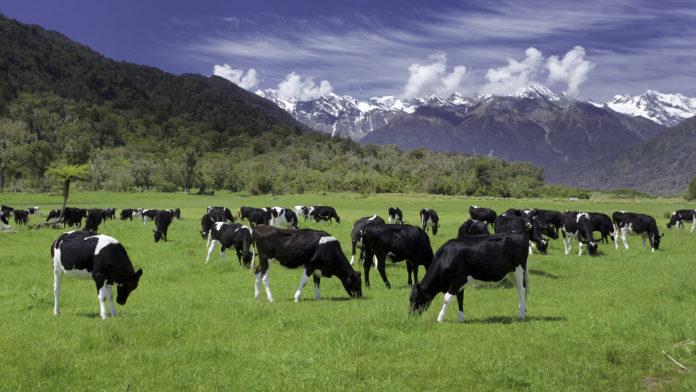
Over half of Irish consumers would like to follow a more sustainable diet (61.5%) and would be more likely to do so if clearer sustainability labelling (55.3%) and increased accessibility (50.6%) to these products made this ‘sustainability switch’ easier.
That’s the key finding of new national research of over 1,500 Irish adults released this week by the European Milk Forum (EMF) as part of its ‘Dairy in a Healthy and Sustainable European food system’ campaign.
This research also found that consumers strongly believe (83.9%) that Ireland is a suitable place for dairy production, which is a growing issue for consumers with Covid-19 making them more conscious of the location of where their food is produced (60.4%).
The research also detected a significant increase in climate conscious actions by Irish consumers, with recycling (90.4%), reducing food waste (83.3%), choosing regionally-produced foods (52%) and purchasing Fairtrade products (49.3%) among the most common activities undertaken by consumers this past year.
A sustainable diet is defined as a one which balances nutritional adequacy, culturally acceptability, economic affordability and environmental protection*.
Zoe Kavanagh, spokesperson for the European Milk Forum in Ireland and Chief Executive of the National Dairy Council said the research underscored consumers’ desire to eat more sustainably, as well as the value they place on locally produced, Irish dairy.
“The voice of the consumer hasn’t always been clearly heard in the recent debates around Ireland’s dairy industry, but this research clearly highlights the high regard in which they hold our indigenous dairy industry – recognising that fresh Irish dairy products deliver essential nutrition (77.4%) and that a climate like ours couldn’t be more perfect for the production of sustainable grass-based milk, cheese and yogurt.
“Given the increased importance to consumers of the location that food is produced in the wake of the Covid-19 pandemic, ensuring we have a vibrant and sustainable dairy industry is more important than ever.
“The research also identifies a clear desire from most consumers to follow a sustainable – or even more sustainable – diet. What is particularly interesting, however, is the barriers that get in the way of this ambition to follow a more sustainable diet. The research identifies confusion – namely a lack of clear, consistent and coherent information about sustainability on food and beverage products – as a key barrier to this ‘sustainability switch’.
“This has been an issue for consumers for some time now and continues to emerge annually in our surveys. Quality Assurance marks such as the NDC’s Green Rosette or Bord Bia’s Origin Green on-pack can help the consumer seek out local, sustainably produced, healthy products.
“Another issue which consumers have identified is that accessibility to sustainable foods is a barrier. In fact, over half say they would follow a more sustainable diet if sustainable food and beverages were more accessible. This shows that the consumer demand is there, and it is time for everyone on the supply side – from producers to retailers – to step up to the mark.”
Ms Kavanagh said that Irish dairy farmers and producers are committed to playing their part in a national effort to address climate change, by creating a more sustainable industry and protecting rural biodiversity.
“Ireland already has the most efficient production system in the European Union with low levels of carbon emissions, due to our grass-based and family farming systems. We know, however, that there is much work still to be done. Across the country, farmers are reducing emissions from soil management, incorporating clover into their grass management – to act as a natural fertiliser – and utilising lime to increase soil PH.
“Farmers are doing a lot on-farms in terms of reducing their energy usage too. Sustainability experts are working with farmers to improve water quality, looking at preventing surface run-off, safe water management and control of nutrient loss. Almost every dairy farmer in Ireland has been certified under the Sustainable Dairy Assurance Scheme in Ireland (Origin Green) for taking important steps towards improving sustainability.”
* The United Nations’ Food and Agricultural Organization defines sustainable diets as those “with low environmental impacts which contribute to food and nutrition security and to healthy life for present and future generations. Sustainable diets are protective and respectful of biodiversity and ecosystems, culturally acceptable, accessible, economically fair and affordable; nutritionally adequate, safe and healthy; while optimizing natural and human resources.”







